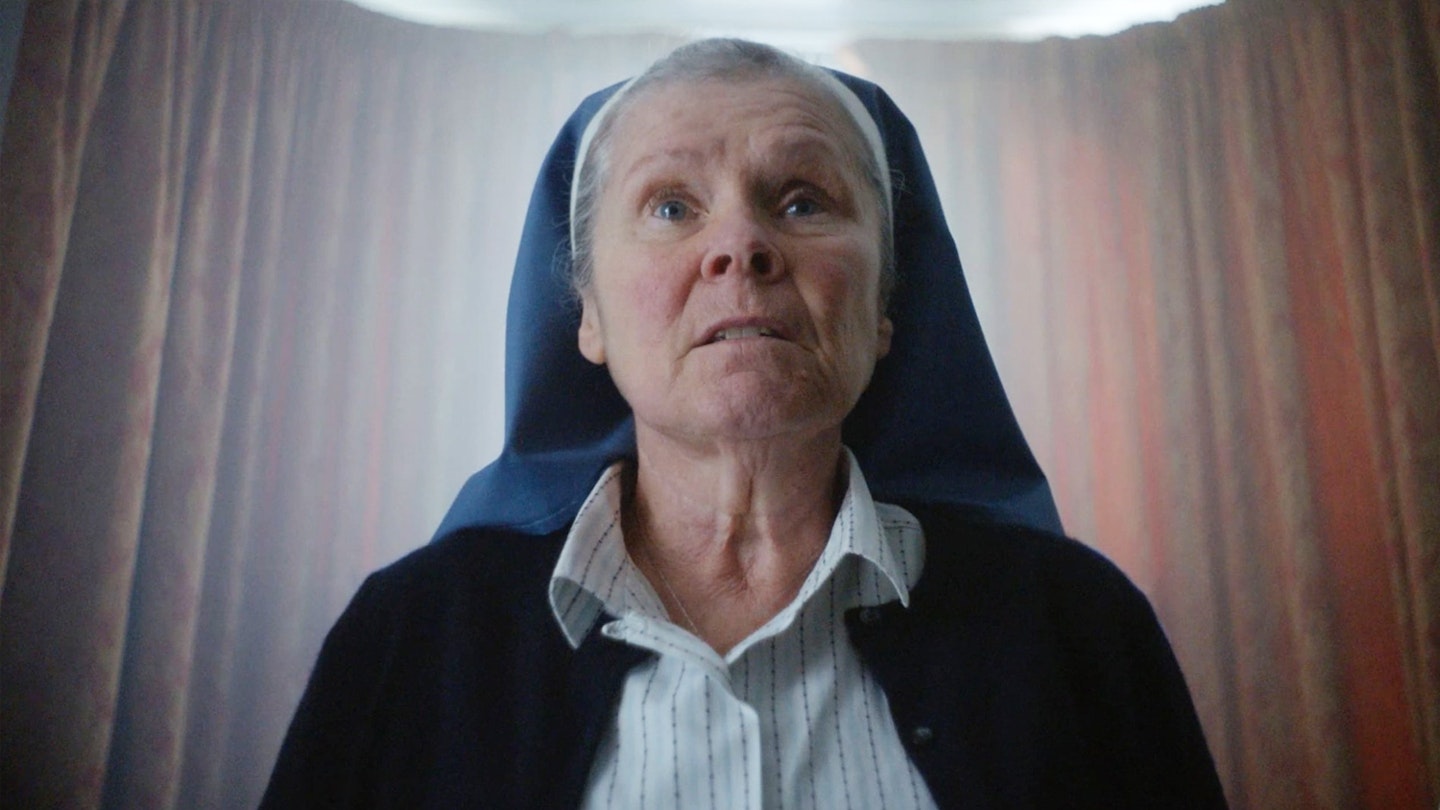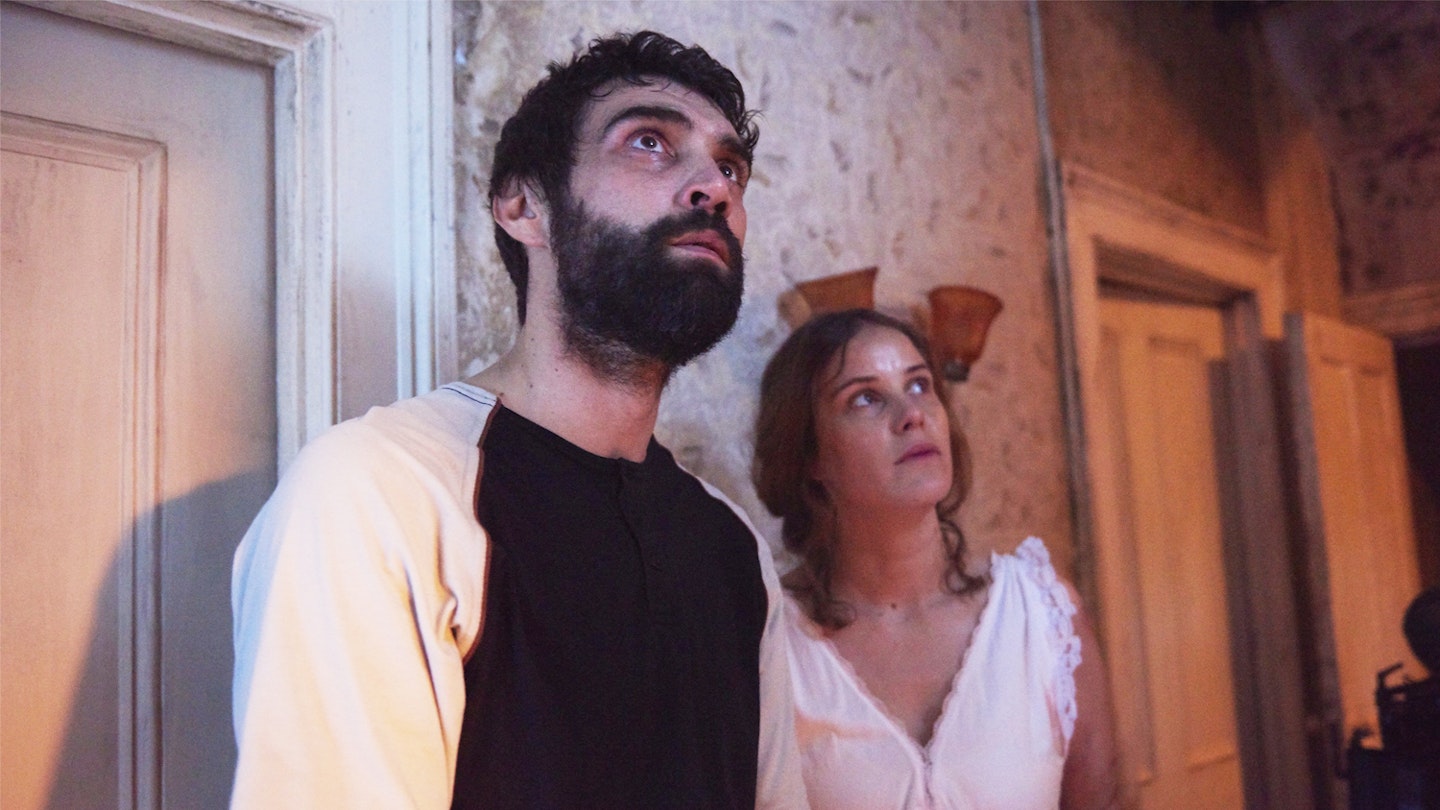Using a decaying house as a visual metaphor in horror movies isn’t new, but in her directorial debut Amulet, Romola Garai executes the idea impeccably. Peeling wallpaper, spreading black mould and dirty, glugging water set the scene for this slow-burn of a story, a clear indication of the characters’ rotting state of mind and sense of self.

These grim aspects of Amulet’s core location become something for Tomas (Alec Secareanu), a migrant working as a builder, to fix. When we meet him, he appears to be a victim of human trafficking, trapped in a circle of manual labour and sleeping with his hands taped up. After a fire leaves him penniless and hospitalised, he moves in with the quiet, curious Magda (Carla Juri), who cares for her dying, top-floor-dwelling mother. Tomas quickly realises something is amiss, his sense of disorientation amplified by persistent flashbacks to time spent living in the woods during a war in his home country.
It doesn’t all work, but Garai’s boldness is admirable.
Garai has a talent for unsettling the senses — the enhanced volume of Tomas slurping down Magda’s home-cooked stew sets your teeth on edge, and you can practically smell the damp-ridden walls — but the overt horror of the surroundings contrasts nicely with the subtlety of the performances. Secareanu delivers the wide-eyed stillness that made him so impactful in God’s Own Country, whilst showing glimmers of the not-so-good guy that lies beneath. Juri, meanwhile, sells the odd naïveté of a girl that has lived a sheltered, difficult life, at once evoking joy and discomfort in the moments where she breaks free from her shackles, while Imelda Staunton is chilling as a seemingly charitable nun with a dark side.
Amulet’s crescendo is its downfall. It rushes into full-blown trippy surrealism, attempting to thread together themes previously hinted at — guilt, motherhood, female rage — whilst throwing in some big reveals, and trying to see the demented plot through to its convoluted conclusion. It doesn’t all work, but Garai’s boldness is admirable, and the thought-provoking nature of some of the mysteries the finale uncovers makes you wish they’d been more present throughout.
